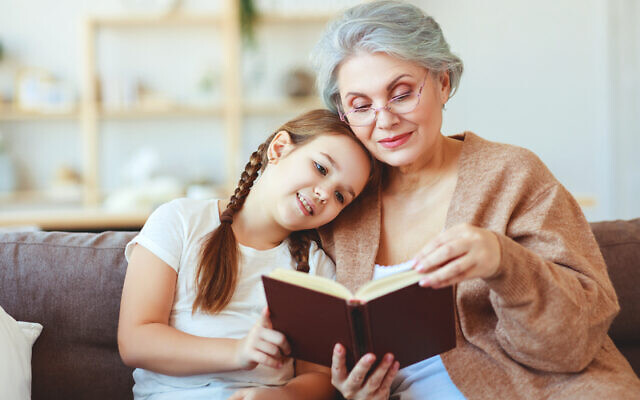The realisation of what’s truly important
'A bedtime story read to a grandchild via a pixelated screen can never replace the same story read while the child drops off to sleep while nestled in their grandparent's embrace'.
DURING the pandemic I have not learnt a new language or how to play the piano, but I have learnt something more valuable. Now I know precisely what is precious to me.
If absence makes the heart grow fonder then a lockdown is absence on steroids. Identifying what I can easily live without has been easy (such as commuting through congested traffic), but more impactful has been the mournful realisation of what is truly important.
So, in no particular order, here are the top three from my list of those aspects of life that COVID has reminded me are priceless.
Children in school
Has ever before a generation of school children wanted to be at school and not at home? This one does, and they are right. Children at home are missing their friends, their socialisation and their routine. They are suffering increased strains to their mental health and their wellbeing.
Thankfully, the pandemic has struck in an age when we have the technology to teach and learn online, and the schools in our community have been striving to recreate lessons and other school experiences via a computer screen, but they cannot compare to the real-world experience.
More than ever we realise that the nexus of personal contact between teacher and student is at the heart of learning, and always will be. As a principal I miss bumping into colleagues, but more than that, I yearn for the sound of young people, usually happy and excited, as they engage in lessons, walk through the school, and enjoy recess. In lockdown, the silence that echoes through the corridors is deafening and defeating.
Synagogue
Some punctuate their day with exercise; for others it is meditation; my day (in good times) revolves around shule. Six-thirty every morning (seven-thirty on Shabbat) and afternoon / evening services timed around sunset serve as fixed points for my waking hours. Shule provides an excuse for a walk, a camaraderie and, more significantly, an inescapable opportunity to retreat and reflect. On a good day, prayer facilitates for me a true encounter with the divine.
One certainly can pray without a minyan, and in a situation where there is no alternative (and obviously illegal minyanim which desecrate God’s name have no chance of taking our prayers to heaven) but a lonely corner of my study where I stand alone can never create the same feeling as does prayer among others, in a building consecrated for that purpose.
Being with grandchildren
To my delight, most of my children and all of my grandchildren live in Israel. In the pre-COVID world, I was fortunate enough to visit the Jewish state at least twice a year, to feel the joy of walking its streets and imbibing its past and present as the fulcrum of the Jewish story. New chapters of my own family story are being written there each day, and so an even greater joy has been to be part of my grandchildren’s lives, even if just for a week or two now and then.
Now we struggle to maintain contact through the screens of our phones, which works passably well for the older children but after a year with no more connection than WhatsApp we fear that the younger brood hardly know us.
All Australians with children overseas feel the tyranny of distance, but until this year we at least had the reassurance that we were only a day or two away in an emergency. Now, with the unprecedented (and outrageous) ban on leaving the country without permission, that security has been swept away. A medical crisis during our first lockdown and a new baby born in the second, bring the reality of our separation under these conditions into sharp relief.
Each of these deprivations have a substitute. School students are learning by Zoom; solitary prayer fulfils one’s halachic obligation when no alternative is available; and a plethora of apps offer video calls in a way that was unimaginable just a few years ago. But each of these workarounds share a flaw; they are just not the same as the real thing and never can be.
A child belongs in a classroom, with their friends around them and a teacher on hand to guide.
Communal prayer is intrinsic to the very notion of Jewish worship.
A bedtime story read to a grandchild via a pixelated and jerky screen can never replace the same story read while the child drops off to sleep while nestled in their grandparent’s embrace.
Each of these three parts of my life, and many others, have earned a new appreciated through their absence, and a renewed commitment never to take them for granted when they return, but rather to invest in them as much of my energy and dedication as I can.
What are your top three?
Rabbi James Kennard is principal of Mount Scopus Memorial College.


comments